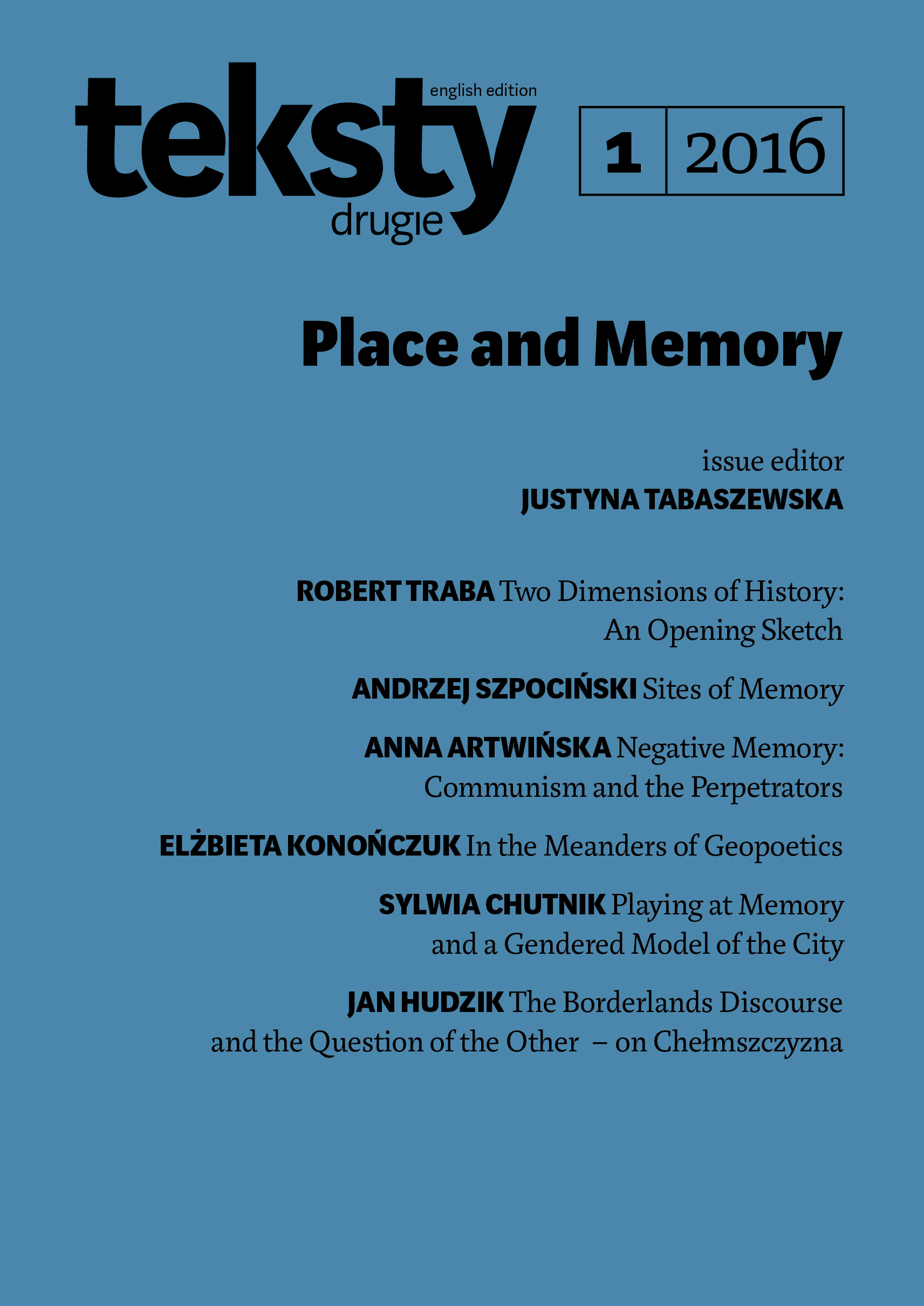Trajectories of “Western Borderlands” Memory After 1989
Trajectories of “Western Borderlands” Memory After 1989
Author(s): Kinga SiewiorSubject(s): History, Anthropology, Social Sciences, Literary Texts, Geography, Regional studies, Human Geography, Regional Geography, Sociology, Recent History (1900 till today), Special Historiographies:, Cultural Anthropology / Ethnology, Post-War period (1950 - 1989), Transformation Period (1990 - 2010), History of Communism, Migration Studies, Ethnic Minorities Studies
Published by: Instytut Badań Literackich Polskiej Akademii Nauk
Summary/Abstract: This article concerns the literature of “minor homelands” representing the territories that were included within Poland’s post-1945 borders. Preoccupied with a search of Otherness and with the concept of a multicultural borderland, this literature rose to popularity in the 1990s. Writers associated with it drew on the poetics elaborated in the context of Poland’s so-called borderland literature [literature kresowa] to rediscover traces of German culture that had been erased during the People’s Republic. By drawing on the poetics of retrospective utopia, however, this literature marginalizes the fundamental problem of forced migration. Siewior describes the strategies of masking that ‘migratory gap,’ i.e. the aestheticizing transfers of older (borderland) traditions, the return to the grandparents’ experience, or the reconstruction of the perspective of the Other. These narrative strategies suggest that this literature is unwittingly entangled in dominant discourses of identity and memory – discourses rooted in nostalgic postwar borderland literature.
Journal: Teksty Drugie
- Issue Year: 2016
- Issue No: 1
- Page Range: 210-232
- Page Count: 23
- Language: English
- Content File-PDF

